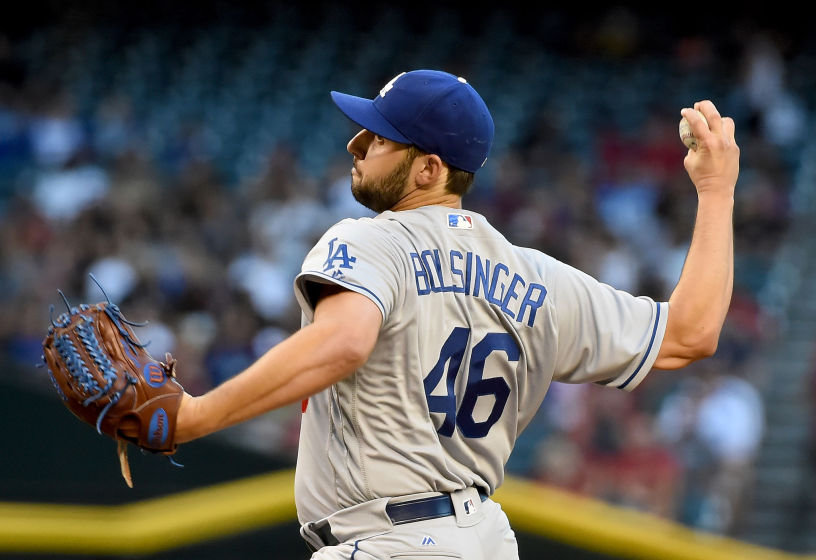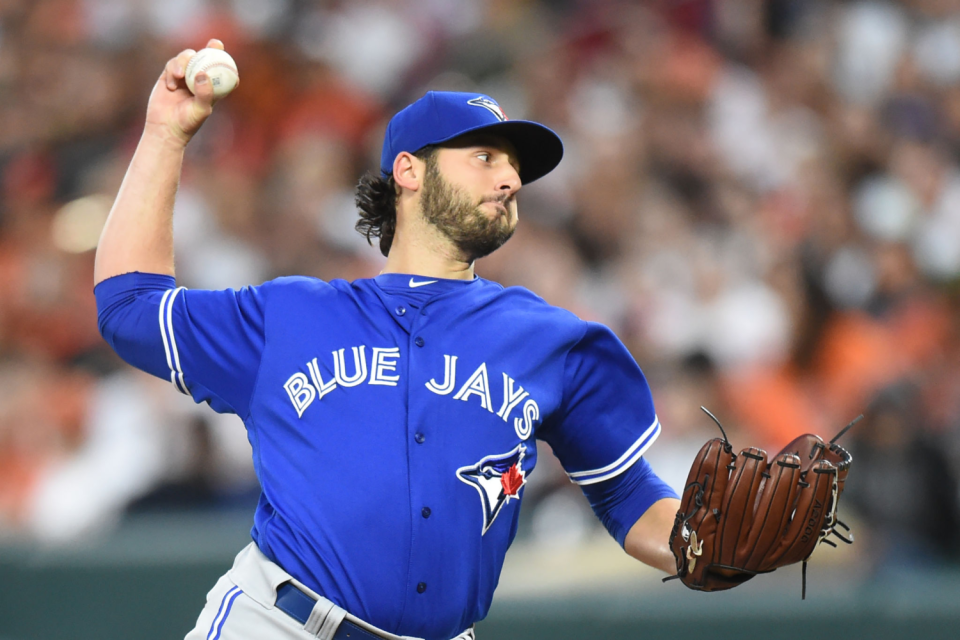This former Dodger sued the Astros. He's losing in court. What drives him?

Mike Bolsinger still throws his bullpen sessions, faithfully preparing himself for the job offer he still hopes will come. He is a pitcher, and pitchers throw.
He has not pitched anywhere for two years. He has not pitched in the United States for four years.
For that, he blames the Houston Astros. In his last major league appearance, in a year the Astros cheated, they shelled him.
He sued. In a court filing, the Astros mocked the lawsuit as “a publicity stunt.”
“Publicity stunt? That’s on the verge of pissing me off,” Bolsinger told The Times over the weekend. “That was my career.”
The lawsuit, however, is all but dead. In a tentative ruling posted Monday afternoon, Los Angeles Superior Court Judge Robert Draper threw out the case. Draper noted Bolsinger lives in Texas, the Astros are based in Texas, and the events that triggered the suit took place in Texas.
A hearing is scheduled Wednesday, in which Draper is scheduled to hear from attorneys and then finalize his ruling. In his tentative ruling, Draper said Bolsinger provided “no evidence” to support the allegation that he could not get a fair trial in Houston and said that, in any case, that would not have been “sufficient to override the numerous significant factors in favor of Texas” as the proper venue for the suit.
If Draper confirms his tentative ruling Wednesday, Bolsinger would have to decide whether to pursue his case in Texas or drop it entirely.
In a court filing, the Astros had called the lawsuit “quixotic” and claimed Bolsinger sued in Los Angeles in a “cynical attempt” to get a jury that might side with him so as to “avenge the Los Angeles Dodgers’ 2017 World Series defeat.”
Bolsinger laughed as those words were read to him. He paused, then countered with the belief that underlies his suit.
“Convince me,” he said, “what you did wasn’t wrong.”
In the 13 months since Bolsinger sued the Astros, no other player joined his lawsuit. He is well aware — as Astros fans repeatedly reminded him on Twitter — that his statistics do not support the allegation that one-third of an inning against the Astros ruined his career.
His career record is 8-19, with a 4.92 earned-run average. In 2015-16, he pitched for the Dodgers. In 2017, the year the Astros beat the Dodgers in the World Series, he pitched for the Toronto Blue Jays.
On Aug. 4, 2017, in a game in Houston, the Blue Jays summoned him from the bullpen and asked him to get the last out of the third inning. He did, but not before seven consecutive batters had reached base and he had given up four runs. Of his 29 pitches, according to his suit, 12 were preceded by the bangs on a trash can that since have been revealed to be signals used to alert Astros batters that an off-speed pitch was coming.
His suit called that performance “the death knell” of his major league career. The Blue Jays designated him for assignment the next day. They had recently converted him from a starter to a reliever, but they offered him no other opportunities to show whether he could succeed in the bullpen.
“I don’t know if we’d be having this conversation if I got another shot,” Bolsinger said. “If I kept pitching the rest of the year and got beat up, well, I think that would have been on me.”

In his suit, Bolsinger had asked that the Astros be ordered to pay $31 million — an amount believed to represent their postseason bonuses in 2017 — to charities.
But, at his core, Bolsinger believes there can be no justice without accountability.
In the 13 months since he sued, he said, no one has reached out to him to apologize for the sign-stealing shenanigans. Dallas Keuchel, who was a teammate of Bolsinger in college, offered a public apology last year for what he called “the whole situation.”
“I’ve never heard anything from him about it, ever,” Bolsinger said.
The Astros were fined $5 million, the maximum allowed under the league constitution but just 1.2% of the team’s revenue in 2019, according to Forbes estimates. They were stripped of four top draft picks. They were not stripped of their World Series championship.
“I think everyone can agree they were never really punished,” he said. “They had no repercussions.”
No players were disciplined. Jeff Luhnow, the general manager, was fired by the Astros but settled his lawsuit against them. A.J. Hinch, the Astros’ manager, served a one-year suspension, then was hired to manage the Detroit Tigers. Alex Cora, the Astros’ bench coach in 2017 and then the Boston Red Sox manager, served a one-year suspension; the Red Sox immediately rehired him.
“Everyone’s back managing,” Bolsinger said. “I hate to try to make it look like I have a pity party on myself, because I don’t. But these guys are getting all these chances, and it’s like nothing ever happened.”
The court could decide whether the Astros did anything illegal. Bolsinger already has decided they did something immoral because, he said, he would not raise his son to justify cheating as a means toward success.
Bolsinger is 33. He has spent the past few months working for a company that coordinates coronavirus testing for college athletic competitions.
He might play independent ball this summer, for next to nothing in salary. But his son is about to turn 3, and he would like his son to have the memory of seeing his father pitch.
This story originally appeared in Los Angeles Times.
